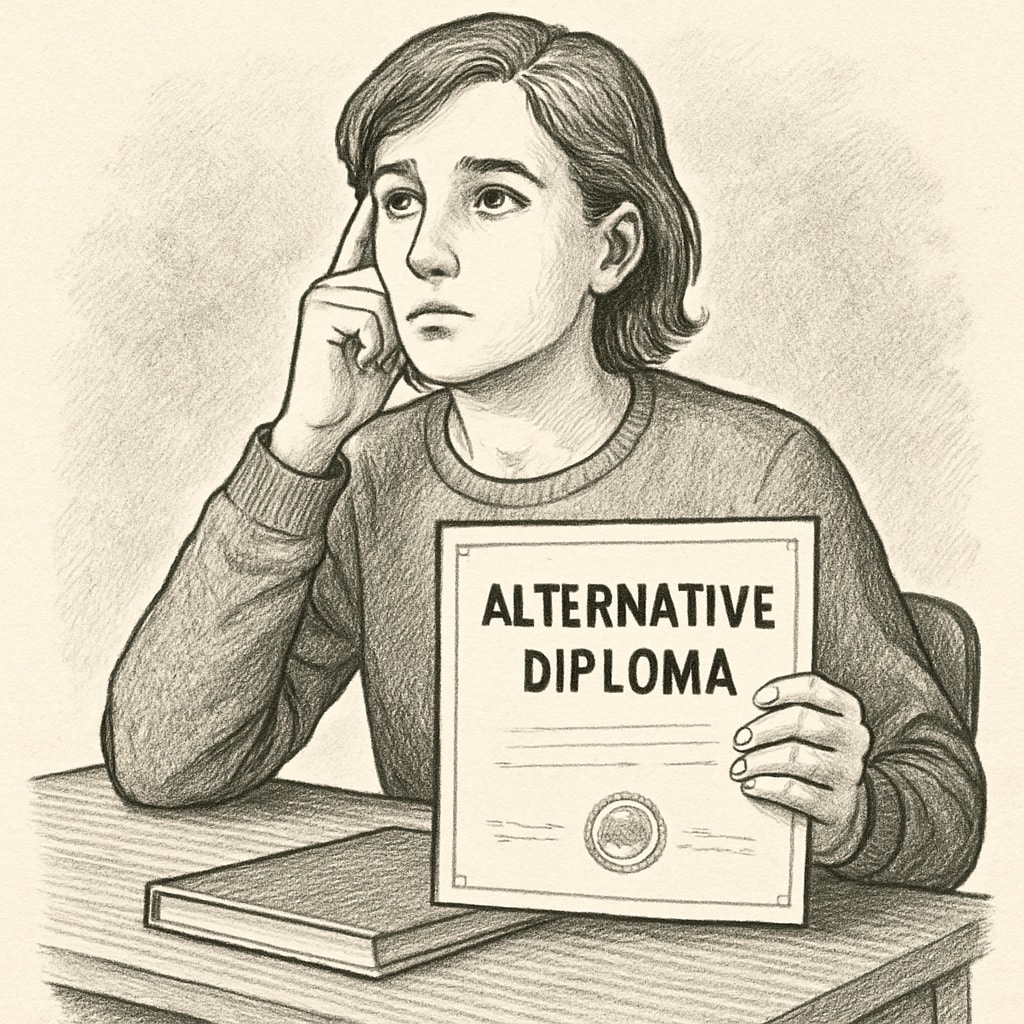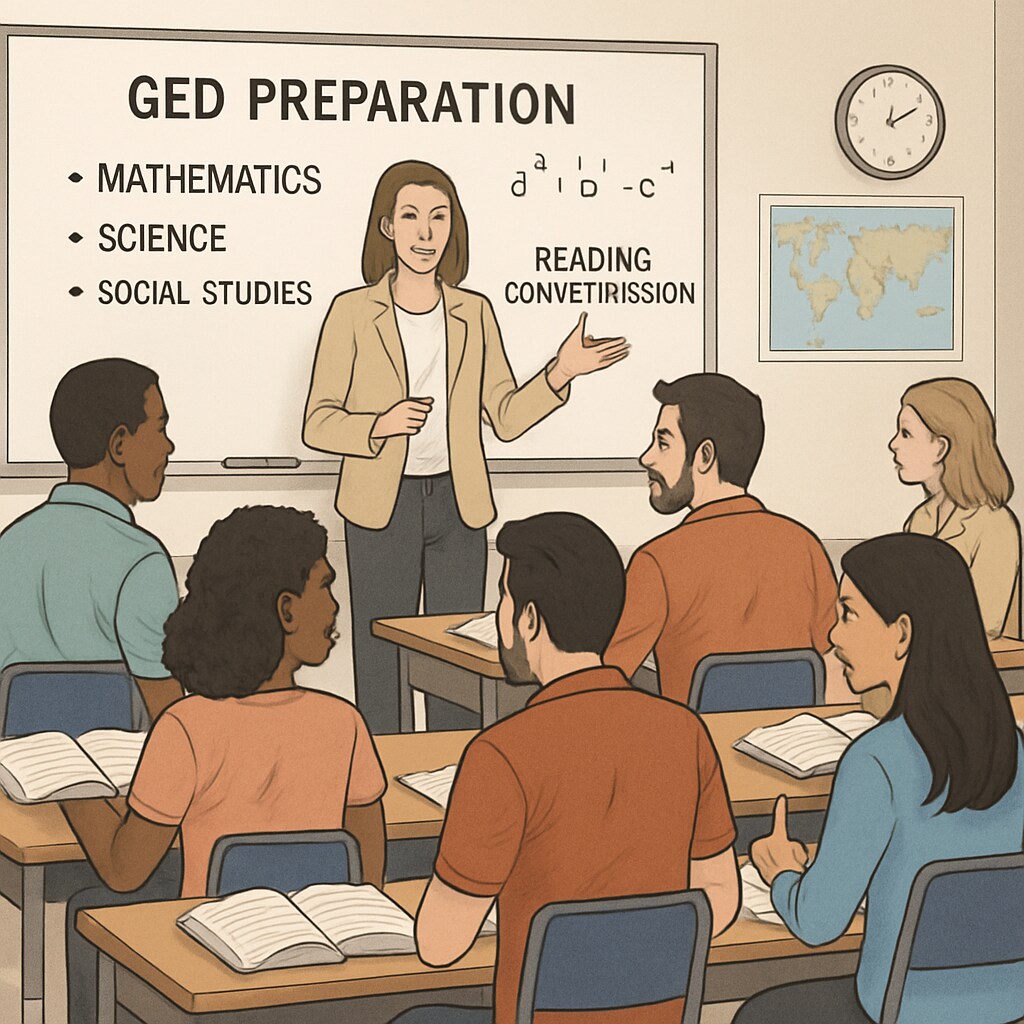For those who hold an alternative high school diploma, the journey is often accompanied by feelings of regret and uncertainty about the future. The stigma surrounding such credentials can impact self-confidence and career aspirations. However, it’s essential to understand that an alternative diploma doesn’t have to define your potential. This article sheds light on the challenges of alternative high school diplomas, their impact on self-identity, and practical ways to convert them into traditional credentials while fostering personal growth.
Understanding Alternative High School Diplomas
Alternative high school diplomas, often referred to as “modified” or “adjusted” diplomas, are awarded to students who complete a high school program tailored to specific needs, such as learning disabilities or nontraditional educational paths. While these diplomas meet certain educational standards, they are sometimes perceived as less rigorous compared to traditional diplomas. As a result, holders of alternative diplomas may face obstacles in higher education admissions or job applications.
For example, many colleges and universities have specific requirements for applicants, and alternative diplomas may not always align with those criteria. Additionally, some employers may view these credentials as less competitive, which can lead to frustration and self-doubt for the diploma holders.

Why Regret Isn’t the End
It’s natural to feel regret when you believe your diploma limits your opportunities. However, regret can be a powerful motivator for change. Instead of dwelling on past decisions, focus on the fact that you have the ability to take control of your future. Many successful individuals have overcome educational hurdles and used them as stepping stones toward growth.
For instance, alternative diploma holders can explore options to enhance their qualifications. Whether through community college programs, GED (General Educational Development) certification, or vocational training, there are pathways to bridge the gap between alternative and traditional credentials.
Practical Steps for Conversion and Growth
If you are looking to convert your alternative diploma into a traditional credential or improve your educational standing, here are some actionable steps:
- Earn a GED: The GED is widely recognized as equivalent to a traditional high school diploma. Many testing centers offer preparation courses to help students succeed.
- Enroll in Adult Education Programs: Some high schools and community colleges offer programs specifically designed for adults who wish to earn a standard diploma.
- Consider Vocational Training: Trade schools provide certifications and skills that lead directly to employment, often bypassing the need for a traditional diploma.
- Pursue Higher Education: Community colleges often accept GEDs or alternative diplomas, offering a pathway to further education and even four-year universities.
Additionally, many online resources and organizations, such as GED Testing Service, provide valuable information for those seeking to expand their educational qualifications.

Shifting Your Mindset
The journey from regret to growth begins with a shift in mindset. Instead of viewing an alternative diploma as a limitation, see it as a starting point. Embrace the idea that education is a lifelong process, and there are always opportunities to learn and achieve.
Here are some tips for maintaining a positive outlook:
- Set Realistic Goals: Break your objectives into manageable steps and celebrate small victories along the way.
- Seek Support: Connect with mentors, counselors, or peers who can guide and encourage you.
- Focus on Strengths: Highlight your skills and achievements in job applications or interviews to counteract potential biases against alternative diplomas.
Conclusion: Your Diploma Doesn’t Define You
While holding an alternative high school diploma might feel like a setback, it’s important to remember that it doesn’t define your value or potential. With determination, the right resources, and a willingness to grow, you can overcome any barriers and achieve your goals. Whether through additional education, vocational training, or a shift in mindset, the journey of self-redemption and growth is always within reach.
As educational systems continue to evolve, society’s perception of alternative diplomas is also changing. By taking proactive steps and focusing on your strengths, you can prove that success comes in many forms and that your potential is limitless.
Readability guidance: This article uses short paragraphs, concise sentences, and lists to ensure clarity. Transition words are used throughout to maintain flow. The tone is empowering and solution-focused, aimed at inspiring readers to take action.


